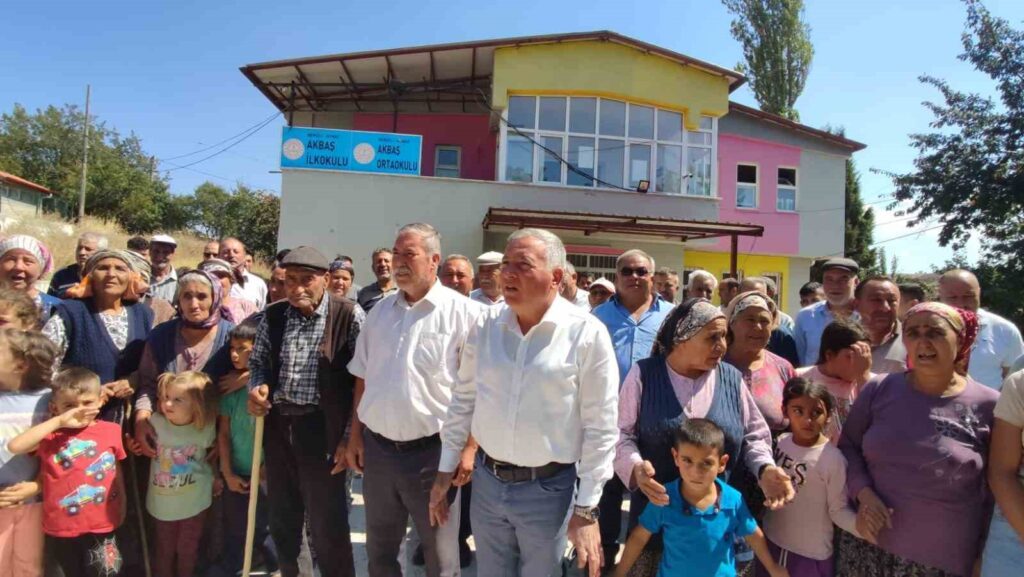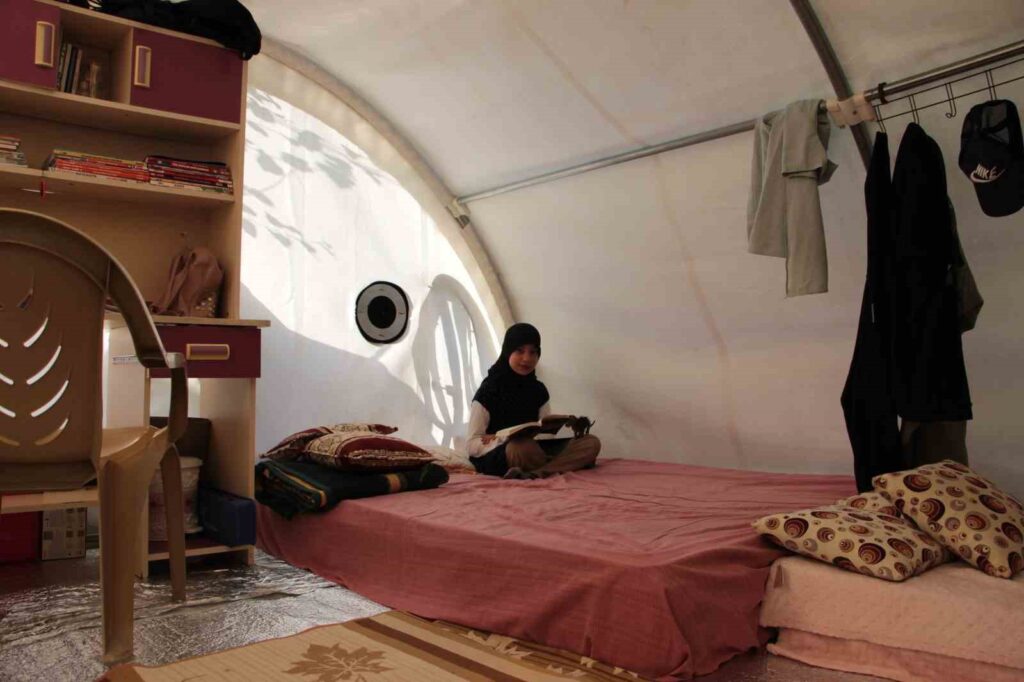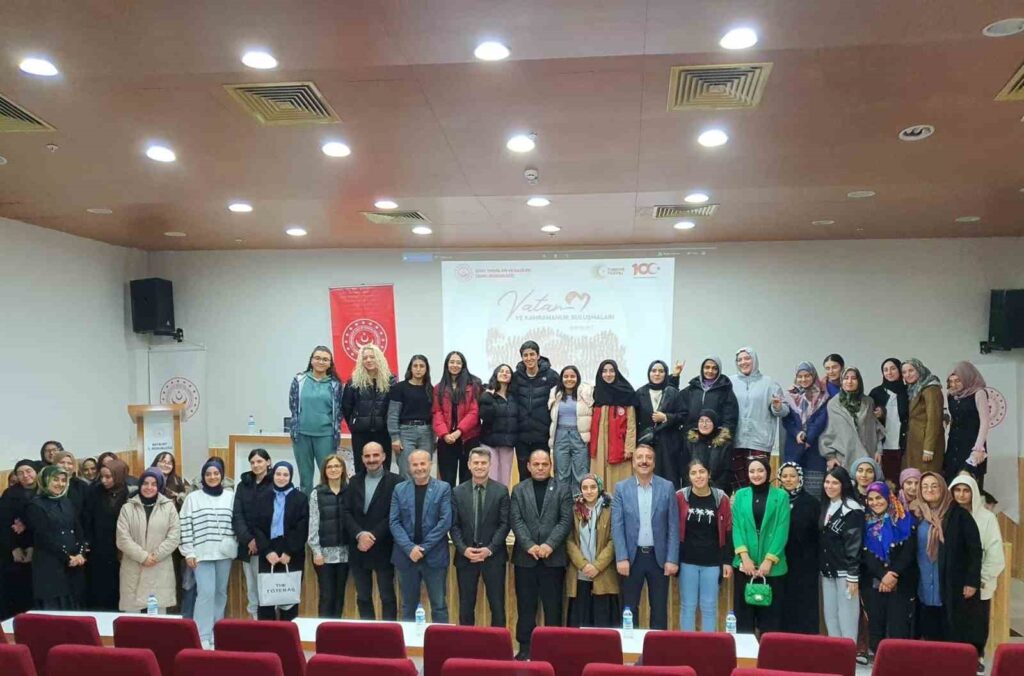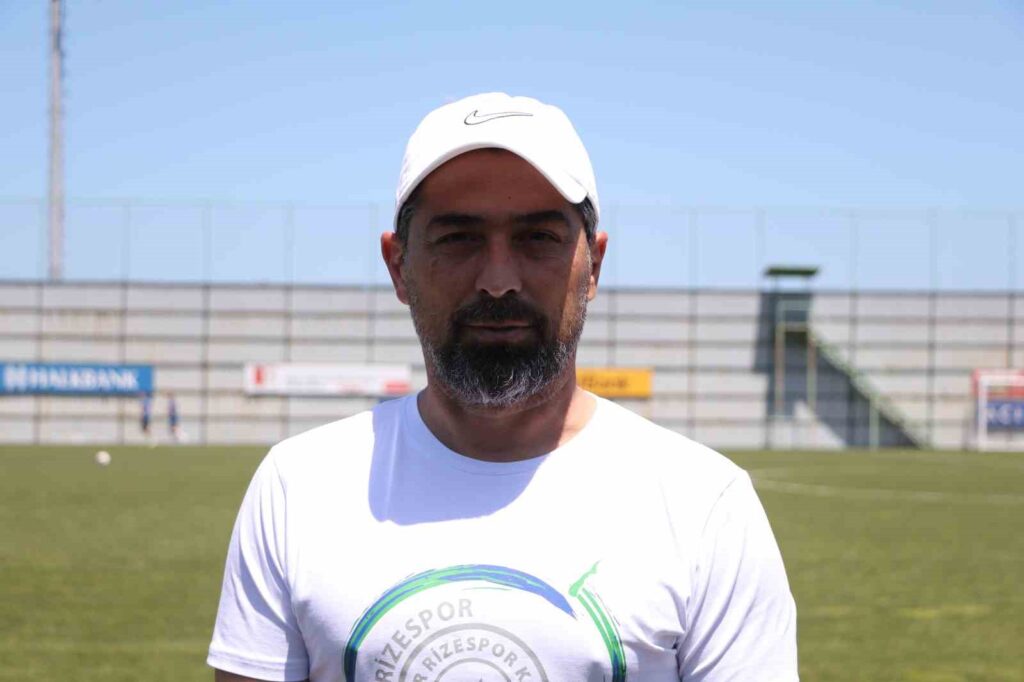President Kepenek did not leave the residents of Akbaş who do not want transportation education alone.
Honaz Municipality Mayor Yüksel Kepenek, who supported the residents of Akbaş Neighborhood protesting against the decision for transportation education in the Honaz district of Denizli, stated, “We have provided all kinds of support to ensure the school is operational and we are ready to provide even more. Please, do not let this…

Honaz Mayor Yüksel Kepenek, who supports the residents of Akbaş Neighborhood expressing their reaction against the decision of transportation education in Denizli’s Honaz district, stated, “We have provided all kinds of support to keep the chimney of the school smoking and we are ready to give even more. Please do not close this school.”
The school in Akbaş Neighborhood, located 26 kilometers away from Honaz district in Denizli, was built in 1952, and a part of it was opened as a middle school 20 years ago. It was decided to close Akbaş Middle School, which has 6 teachers and 25 students, and to transport students to Kaklık Neighborhood, which is 15 kilometers away for education. Villagers in the rural neighborhood, located at the highest point of the district, gathered in the school yard and protested under the leadership of the village chief, Muhammet Avcı, to request the relocation of the school. The villagers, supported by Honaz Mayor Yüksel Kepenek, also initiated a petition campaign to cancel the decision.
Mayor Yüksel Kepenek, who supported the villagers protesting so that the school they fulfill all its needs does not close, said, “We have obtained some positive indications for the school to remain open, but until this school remains open, until we ensure that the chimney of this school smokes, until we enable students to run around in the lively garden, we will fight hand in hand together. Because this village is ours; this village is one of the highest-altitude villages in Anatolia. By emptying these villages, we are actually emptying a village that supports agriculture, livestock, production, and forestry here. We need to stop this project. We are producing policies that cause migration from the village to the city instead of increasing the population of this village and supporting reverse migration from the city to the village. They put numerical data like 25 students, 40 students, or 70 students. We stop doing what is necessary to increase the number of students in a village and instead try to send families towards the city center based on student numbers. I think this is a wrong policy. As Honaz Municipality, we have made arrangements for the heating system, roofs, and garden of this school to ensure the comfort and education of the children. We distributed sports equipment as per the request of the school management. In other words, we have provided all kinds of support to them and will continue to do so.”
“Let’s not empty our villages”
Mayor Kepenek, who wanted the decision to be revoked, said, “I call out to the authorities from here; if this school is to survive, we, as Honaz Municipality, will provide whatever support is necessary until the end. Please do not close this school. Let’s show a stance against the closure of this school together. Because it is not possible to keep these villages alive in any other way, and when these villages are emptied, Anatolia will be emptied. Slums, neighborhoods prone to crime, and jobless areas will emerge on the edges of cities that receive migration. Thus, production will decrease. The number of sheep, which was 46 million last year, has decreased to 42 million this year. Why are we always moving the villages towards the city, and the number of people who will do livestock in the village is decreasing? The number of people who will do agriculture is decreasing. Thus, villages become ineffective, unproductive, and eventually have to be emptied. We want this school to stay here.”
“We don’t want to send our children elsewhere while we struggle to go to work”
Tanju Çakır, a resident of the neighborhood, expressed that they do not want to send their children to another school, stating, “What did they consider, what did they think while making this closure decision? The roads of our village are very bad. There is snow and rain. We come and go under difficult conditions to our workplace. We do not want to send our children by service. There is a school here; there’s no need to go somewhere else. Every year, excuses are made about the number of students. Whether it’s 10 or 100, it’s still too few. People build schools by paying money so that students can be educated, but an existing order here is being attempted to be disrupted. We do not want the closure of our school.”







